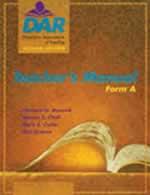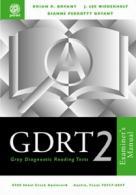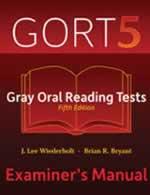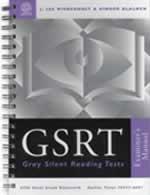TIPS Test of Information Processing Skills
Interest Level:
Additional Components:
Tests, Forms Manual and Software
This product requires a check of customer qualifications.
CLICK HERE to download qualifications form.
> Administration Time: 30 minutes The TIPS provides clinicians with quick and reliable measures of how well a person processes information (letter strings) presented visually and auditorily. Although TIPS had its genesis in the Learning Efficiency Test (R. Webster, 1981, 1992, and 1998), it features new items, new subtests (Delayed Recall and Word Fluency), new scoring procedures, and new national norms (N=3,314). TIPS Performance Relates to:...
> Administration Time: 30 minutes
The TIPS provides clinicians with quick and reliable measures of how well a person processes information (letter strings) presented visually and auditorily.
Although TIPS had its genesis in the Learning Efficiency Test (R. Webster, 1981, 1992, and 1998), it features new items, new subtests (Delayed Recall and Word Fluency), new scoring procedures, and new national norms (N=3,314).
TIPS Performance Relates to: | TIPS assesses: |
|
|
Short-term and working memory responses show differences between sequenced and non-sequenced retention (a hallmark of those with learning disabilities).
Error analyses (Proactive Inhibition and Auditory Intrusion) document the extent to which new information is lost or its retention is inhibited.
Administration and Scoring
The TIPS can be administered in about 30 minutes. Processing is assessed in two modalities (Visual and Auditory) and three recall conditions using strings of two to nine non-rhyming letters. Sequential and non-sequential scores are obtained; standard scores and percentile ranks are provided.
The Scoring Tutorial
(Provided in the Manual) Walks the new user through the scoring procedures and includes a Practice Exercise with an Annotated Key
TIPS Subtests Visual and Auditory Modality |
|
| Delayed Recall Subtest |
|
| Semantic Fluency Subtest |
|
The TIPS Protocol
Provides a detailed summary of how one processes new information presented visually or auditorily. An easy-to-use format facilitates score calculations.
The TIPS Test Kit includes: Manual, Stimulus Card Booklet, 25 Protocols
About the author:
In 2006, Dr. Raymond Webster joined the medical staff at East Carolina Neurology, the largest private medical neurology group in eastern North Carolina, as a consulting neuropsychologist. For 23 years prior to that, he was a professor of psychology and Director of Graduate Studies at East Carolina University, where he is now Professor Emeritus.
User Qualifications:
To administer this test at least a master s degree is required, with state licensure OR certification from a professional organization (ASHA, AOTA, APA, AERA, ACA, AMA, NASP, NAN, INS) that requires formal training and experience in ethics, psychometrics, statistics, and scoring and interpretation. Tests of perceptual, academic, and functional processes used in schools, clinics and rehabilitation settings are of this level. All test users, regardless of level and profession, are expected to abide by the standards set forth by the APA, AERA and NCME regarding the ethical use, protection and dissemination of all test materials. All orders for the products listed below, must be placed on official institutional purchase order forms or professional letterhead.
The purchase of this product requires a check of customer qualifications.
CLICK HERE to download qualifications form.
Orders for items on this page cannot be completed online. Please attach completed qualifications form to your institutional purchase order or professional letterhead when ordering this product. For questions or help placing your order for these items call (800) 880-4433.
To create a requisition form
- Enter a Quantity for the item(s) desired
- Click Add to Cart
- Click Print a requisition list
Item #
Products
Price
Wishlist
Qty
Requested quantity is not available at this time
YA1161YY
TIPS Complete Test Kit
$185.00
Requested quantity is not available at this time
YA1162YY
TIPS Manual
$75.00
Requested quantity is not available at this time
YA1163YY
TIPS Stimulus Card Booklet
$60.00
Requested quantity is not available at this time
YA1164YY
TIPS Protocols (25)
$50.00




